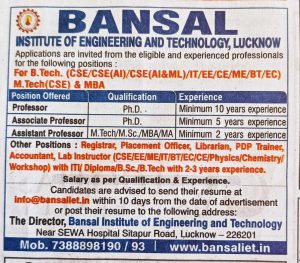VISION
To become a department of excellence that churns out civil engineers with technical competencies and abilities to meet the current and future challenges in civil engineering.
MISSIONS
M1: To assure the effective teaching-learning process to provide in deep knowledge of principles and their application concerning to civil engineering and inter disciplinary areas.
M2: Developing an ability to use techniques, skills and modern engineering practices with the help of accessible software lab system.
M3: Providing students a good opportunity to gain full awareness about industrial practices by organizing industrial visit for students.
M4: Making students employable through application of knowledge and by conducting seminar.
Civil engineering (CE)
is a professional engineering discipline that deals with the design, construction, and maintenance of the physical and naturally built environment, including works like roads, bridges, canals, dams, and buildings. Civil engineering is one of the most traditional engineering studies in India. British started very good schools for civil engineering studies and successfully completed some of the best public projects like Ganga canal and India’s Railway network to name few. A bachelor degree in civil engineering will give good opportunities in industry as India is moving fast forward for infrastructure development and one the same time leave a good space for higher studies at home and abroad like MS in civil engineering.
It is traditionally broken into several sub-disciplines including
Application of Bio-technology
MISSIONS
1. Environmental engineering
2. Geotechnical engineering
3. Geophysics, geodesy,
4. Control engineering,
5. Structural engineering
6. Biomechanics
7. Nanotechnology
8. Transportation engineering,
9. Earth science,
10. Atmospheric sciences,
11. Forensic engineering,
12. Municipal or urban engineering,
13. Water resources engineering,
14. Materials engineering,
15. Coastal engineering,
16. Surveying, and construction engineering.
Civil engineering takes place on all levels: in the public sector from municipal through to national governments, and in the private sector from individual homeowners through to international companies.
Intake : – 120 seats
Duration :- 4 years
Subjects :- link to AKTU website syllabus page
Eligibility :- Candidate must have clearly passed intermediate examination of U. P . Board or 10+2 level examination or its equivalent from any recognized Board/University and securing minimum 45% marks (40% marks for SC/ST Category candidates) without grace in required subject mbination (2 compulsory 1 optional taken together).
Direct Admission to Second Year for Engineering Diploma holder & B.Sc Graduates :-
[a] Candidates who have passed three years Engg. Diploma in any branch of engineering except Agriculture from any recognized Institution by the Board of Technical Education, U.P. with minimum 45% marks (40% for SC/ST) marks in aggregate without any grace marks, are eligible for admission to second year in any branch of engineering.
[b] Candidates who have passed three years B.Sc. degree from any recognized University and passed XII standard with mathematics as one of the subject securing minimum 45% marks(40% for SC/ST) in aggregate, are also eligible for admission to second year in any branch of Engineering/Technology

